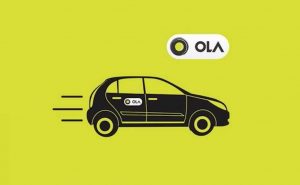Indian ride-hailing firm Ola’s pilot project to test a fleet of electric vehicles in the western city of Nagpur was expected to herald a coming revolution in the Indian autos industry. So far, though, it has only exposed fractures in PM Narendra Modi’s ambitions to make all new vehicles electric by 2030.

With an initial investment of about $8 million, Softbank-backed Ola launched the project last year at an event that had all the trappings of a state function, including abig gathering and flagging off by Union transport minister Nitin Gadkari. But nine months later, the programme has hit a snag: Ola drivers, unhappy with long wait times at charging stations and high operating expenses, want to return their cars and switch to fuel-guzzling variants.
Of 20 Ola electric car drivers interviewed by Reuters in Nagpur, at least a dozen said they had either returned their electric taxis and switched to diesel, or were planning to do so. Ola had said it would make 50 charging points available across four locations in Nagpur for its fleet of 200 electric vehicles, but on avisit to the city in late January, Reuters found only about a dozen charging points. Ola has since added 10 additional charging points but is still short of its target. Ola did not respond to requests for comment for this article. According to reports, Ola was forced to close one in Nagpur last year after protests by residents angered by traffic jams caused by drivers. It took more than five months to get government clearances to begin operating another station.
Global auto makers have repeatedly warned that India is not ready for electrification, saying the government must first lay down a clear, long-term policy, provide incentives to encourage manufacturing of electric vehicles to bring down their cost and create the charging infrastructure. Gadkari added to the uncertainty when he said last month that the government would no longer draft a separate electric vehicle policy. He did not comment on the 2030 vision.
“The project’s not flying as of now and the economics is not working out,” the source said. Electric car sales in India, one of the world’s fastest growing auto markets, made up less than 0.1% of annual sales of more than 3 million passenger cars. The lack of demand is mainly because they are expensive – due to high battery costs – and as their range is limited and there isn’t a charging infrastructure.
(Source : Economic Times)



























